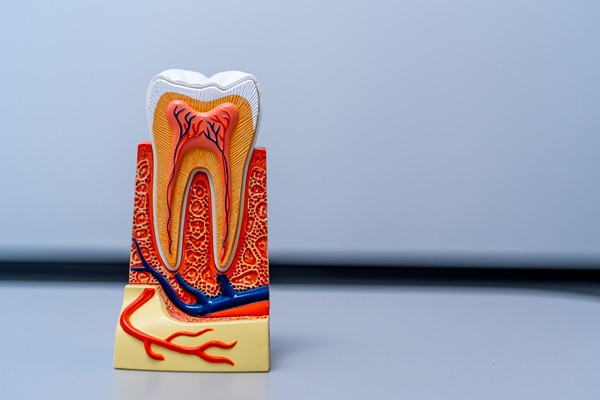When You Should Consult a Root Canal Specialist

Wondering when you should consult with a root canal specialist? Read on to learn more. Root canals are dental procedures designed to save teeth with severe damage or infection. A root canal specialist will ensure you get the best care for your dental needs.
When to consult a root canal specialist
When faced with the following conditions, consulting a root canal specialist as soon as possible is a good idea:
Severe tooth pain
Experiencing intense, persistent tooth pain can be distressing and often signifies a deeper issue. This kind of agony may indicate an infected or damaged tooth pulp, the innermost part of the tooth housing nerves and blood vessels. Regular dentists are proficient in diagnosing and treating various dental conditions, but if the pain is excruciating and fails to respond to conventional treatments, it may be a sign to see a root canal specialist. They possess specialized skills in diagnosing and managing complex root canal problems.
Tooth sensitivity to hot and cold
Tooth sensitivity to hot and cold temperatures is a relatively common concern, but it could signal an underlying issue when it becomes unbearable or persists for an extended period. Endodontists excel in identifying the source of extreme temperature sensitivity, which frequently necessitates root canal treatment to provide lasting relief.
Swollen gums and facial swelling
Swollen gums or facial swelling near a tooth can indicate an infection in the tooth's pulp. In such cases, immediate attention is essential to prevent the infection from spreading further. An endodontist can assess the extent of the infection and, if necessary, perform a root canal to save your tooth and alleviate discomfort.
Dental trauma
Accidents or injuries to the teeth can lead to pulp damage, even if there are no visible cracks or fractures. A cracked or fractured tooth can expose the pulp to harmful bacteria, potentially leading to infection. Endodontists can assess the severity of tooth fractures and determine whether a root canal is necessary to save the tooth. Swift action is critical to save the tooth and avoid potential complications.
Deep cavities and tooth decay
Deep cavities and extensive tooth decay can result in pulp inflammation and infection. Although dentists often manage many cases of tooth decay with fillings or crowns, a root canal may be the most appropriate course of action if the decay has reached the pulp. An endodontist can assess the extent of the damage and recommend the necessary treatment.
Failed previous root canal
Unfortunately, a previously treated root canal can fail or develop complications over time. Consulting an endodontist is crucial if a patient is experiencing persistent pain, infection recurrence, or any unusual symptoms related to a tooth that has previously undergone a root canal. They can conduct a comprehensive evaluation and, if needed, provide retreatment to address the issue effectively.
Conclusion
When dealing with complex or severe dental issues related to a tooth's pulp, turning to a root canal specialist is a wise choice. Their specialized training and experience in diagnosing and treating root canal problems make them the go-to professionals for preserving damaged or infected teeth. Remember that early intervention can often prevent the need for tooth extraction and help you maintain a healthy, pain-free smile.
Check out what others are saying about our services on Yelp: Root Canal Specialist in Santa Rosa, CA.
Request an appointment here: https://santarosaendodontics.com or call Santa Rosa Endodontics at (707) 706-2143 for an appointment in our Santa Rosa office.
Recent Posts
A non-surgical root canal is an endodontic procedure known for preserving a tooth affected by severe decay, infection, or trauma, all without incisions in the gum tissue. Many patients become anxious when they hear the term "root canal," yet modern techniques can provide a gentler experience than expected. Endodontists often recommend this treatment when a…
A general dentist can perform basic tasks in tooth care, such as X-rays, oral examinations, filling cavities, and extractions. However, patients may be referred to an endodontist for more complex work, such as certain root canals. When is it likely for a dentist to refer a patient to this dental specialist?While a filling can fix…
Root canal treatment is often the first line of defense for treating teeth with compromised pulp chambers. The pulp chamber is the innermost layer of a tooth, and it stores nerves, blood vessels, and connective tissues. The chamber is sealed off from the rest of the tooth to protect it against bacteria and other irritants…
A root canal can preserve and strengthen a severely damaged or infected tooth. When seeing a root canal dentist, asking informed questions can provide clarity, ease concerns, and improve treatment outcomes. Understanding the procedure helps make the experience more comfortable and ensures you are well-prepared for each step.While each patient's situation is unique, the following…


